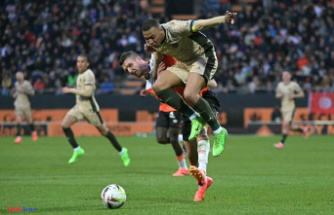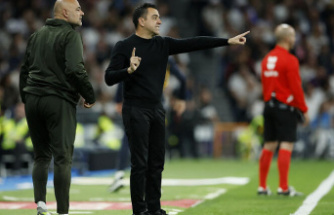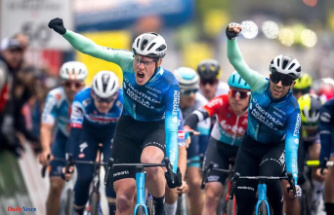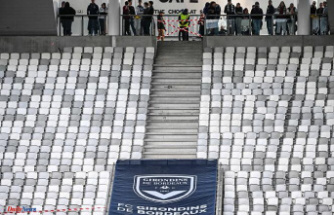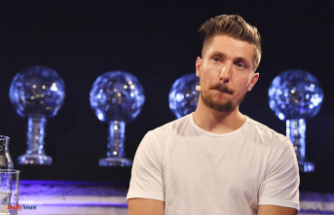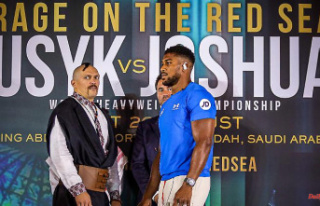The German swimmers celebrate a golden conclusion to the European Championship races in Rome, but they still have a big problem: they can't find a national coach. The gaze is now far ahead. The next Olympic Games have already been written off.
Concern about the future quickly mingled with the joy of the golden EM qualification. Even without Olympic champion Florian Wellbrock, who couldn't get back into shape in time after a corona infection, the German swimmers shone in the Foro Italico with two title wins and a total of eight medals. But the main problem remains acute: there is a lack of money - and thus a national coach.
"We can't keep up internationally with the salary structure," admitted competitive sports director Christian Hansmann after the end of the pool race in Rome, "the public funds that we have in the coaching area are not sufficient." Actually, there should already be a successor for Wellbrock's coach Bernd Berkhahn, who had also acted as team boss at the Olympics in Tokyo, at the beginning of the year. "We are without a leader in competitive swimming," complained Berkhahn, who now officially operates as the "long distance" national coach, even before the European Championships.
Hansmann, who only took over his post at the German Swimming Association (DSV) at the beginning of the year, tried it - but he only received rejections. "We had very good candidates from Australia, Denmark, Hungary and the Netherlands who produced Olympic medals and world records and were very interested," said the former open water swimmer, "but we couldn't offer them the salary - or the long-term perspective ." Now an “internal solution” is being sought again, at least until the 2024 Olympic Games in Paris.
But money is not only missing for a national coach. There are also problems with the training of young coaches. Because, according to Hansmann, the education and science officer is no longer paid by the Federal Ministry of the Interior (BMI), the course for the A license had to be postponed. "We really need well-trained coaches with modern knowledge in order to be able to achieve something at world level," said Berkhahn, "we lack that."
Funding is also lacking elsewhere. "There's a problem at the federal bases, the weight room isn't properly equipped, the video system in Magdeburg is broken," Hansmann said: "If we're talking about international medals, which are required, we also have to be adequately equipped, both in terms of staff as well as materially."
In terms of sport, the deficits are particularly noticeable in the short-distance area. While Berkhahn's Magdeburg training group with Wellbrock and his wife Sarah and the young swimming couple Isabel Gose and Lukas Märtens, who won five of the eight medals in Rome, are among the best in the world, the sprinters are mostly second-class at best. A ray of hope were the third places of Ole Braunschweig and Lucas Matzerath over 50 m backstroke and breaststroke - but not on Olympic distances.
"Now we have to set the course so that something changes. But that will take decades," Berkhahn speculated pessimistically. And Hansmann doesn't see a quick fix either: "It's very, very short until Paris. Actually, we have to look at LA." For the 2028 Summer Games in Los Angeles.


